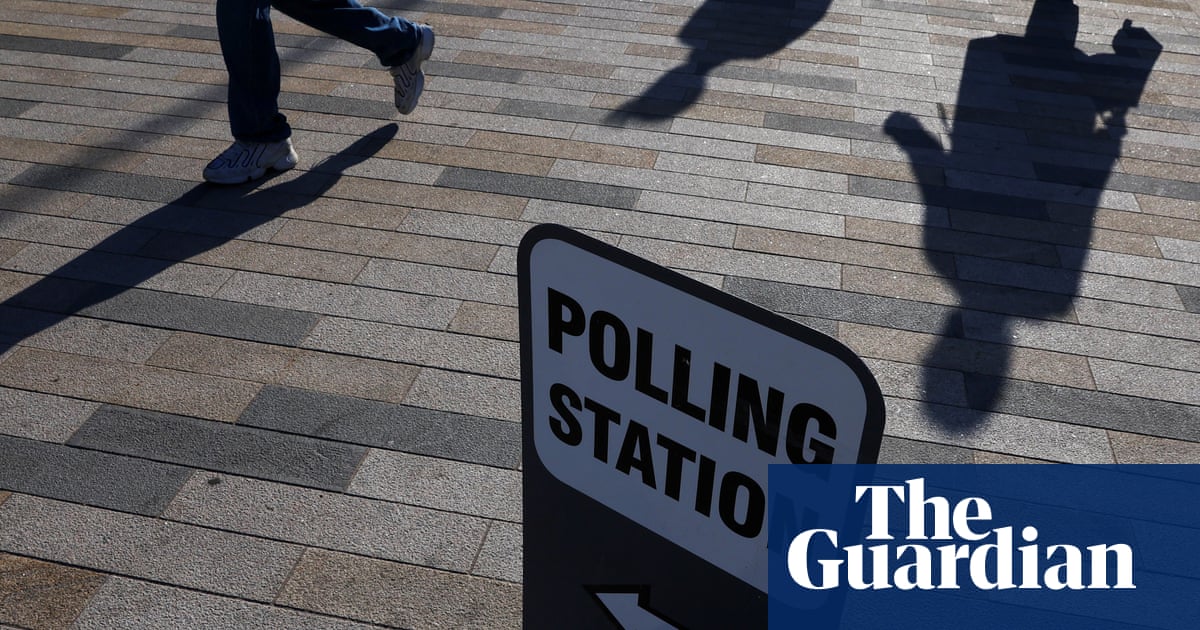Age and education have displaced class as the main demographic dividing line in British politics, according to a leading study on trends in public views.
The British Social Attitudes survey, which has run annually since 1983, found that traditional class-based support for parties had diminished.
“The underpinnings of the system have disappeared, have been eroded. So class no longer equals vote. We now have multidimensional politics,” said Prof Sir John Curtice, a senior research fellow at the National Centre for Social Research (NatCen) and a co-author of the report.
“Trust in government, trust in politicians, is at an all-time low. So you can see all these things going on is creating an environment that means it looks more difficult for the Conservatives and Labour to hang on.”
The analysis found that in the 2024 general election, Labour did not reconnect with its traditional base of working-class voters, whose support dropped substantially in 2019. Among those in semi-routine and routine occupations, 30% voted Labour, compared with 42% of people in professional and managerial jobs.
“London is now the most pro-Labour part of the country and actually the core Labour voter is a young, often first-generation, middle-class professional living in London,” Curtice said.
The survey found that age and education were more often determining factors in voting intention. It said only 6% of 18- to 24-year-olds voted Conservative, compared with 36% of those aged 65 and over. Across age groups, just 5% of graduates voted for Reform UK, it found, compared with 25% of those with qualifications less than an A-level.
“Brexit speeded up a process which is that our politics are no longer simply about left versus right,” Curtice said. “We now have a second dimension, which has always been there to a degree but which now matters far, far more. And that is basically culture wars, it’s social liberals versus conservatives, it’s libertarians versus authoritarians.”
The survey found record levels of support for electoral reform. For the first time, a majority of supporters of all parties favour electoral reform – 55% of Labour supporters, 52% of Conservatives and 56% of Liberal Democrats, as well as 90% of Greens and 78% of Reform voters.
In total, a record 60% of survey respondents said there should be a change in the electoral system “to allow smaller political parties to get a fairer share of MPs”.
Curtice said: “It does show how civil society, in the wake of what was the most disproportional outcome in British electoral history, has moved on.”
Alex Scholes, the research director at NatCen, said the “political landscape is poised for potential transformation”. He added: “The 2024 election highlighted significant challenges to Britain’s traditional two-party system andthe resulthas yet to restore public trust and confidence.”
Sign up toFirst Edition
Our morning email breaks down the key stories of the day, telling you what’s happening and why it matters
after newsletter promotion
The survey found plummeting levels of satisfaction with public services. A record 59% of people are now dissatisfied with the NHS, compared with 25% in 2019. Only 21% are satisfied, down from 60% in 2019.
It also found that 53% are dissatisfied with the provision of social care, compared with 37% in 2019.
A record 26% said they were struggling to live on their current income, up from 16% before the pandemic. The proportion who said they were living comfortably fell over the same period from 50% to a record low of 35%.
Curtice said: “People who say they’re struggling on their income are less likely to be trusting politicians. Those who think the health service is not doing very well are less likely to be trusting politicians and governments. So these things are related.
“The risks that face this government and the opposition collectively were very, very clearly there in the election – you have to cast your eyes away from Westminster. The majority of 174 is a creature of the electoral system, it is not a reflection of what happened in terms of how people voted.”
